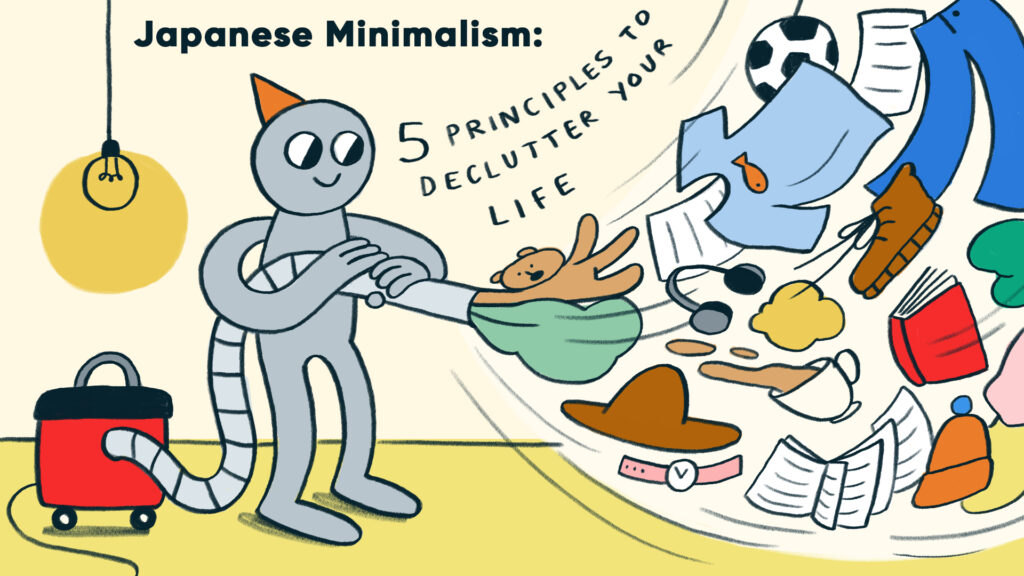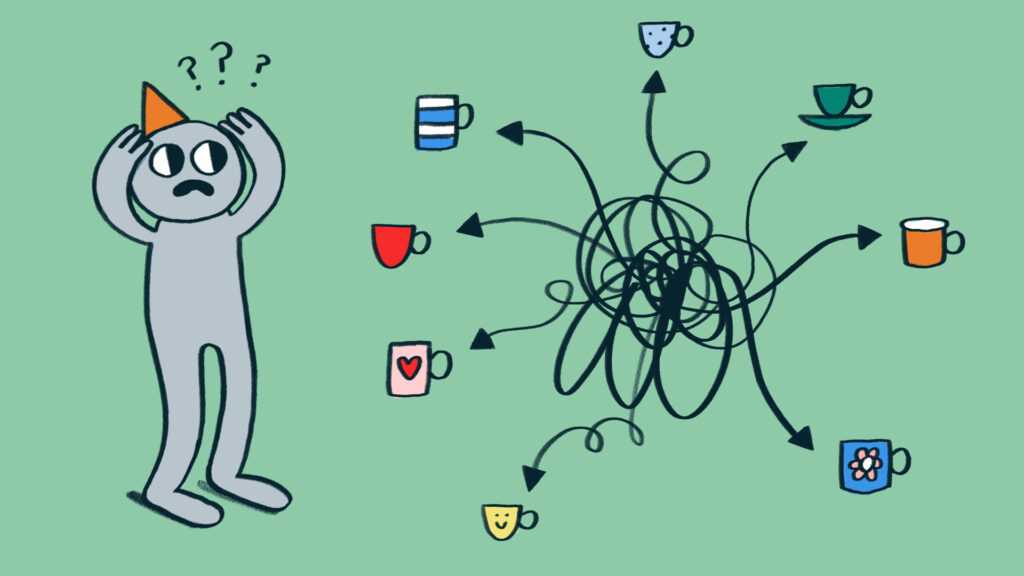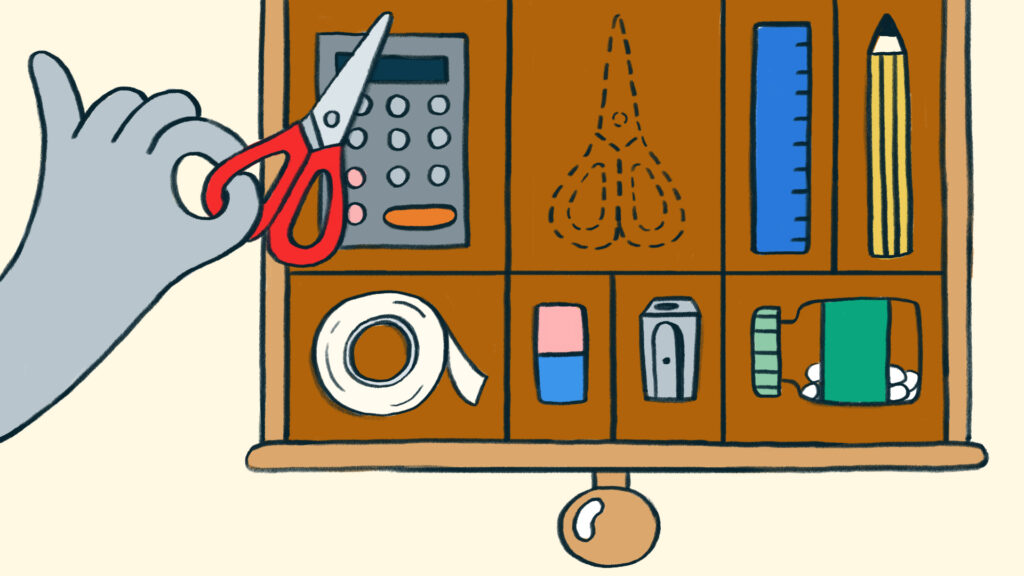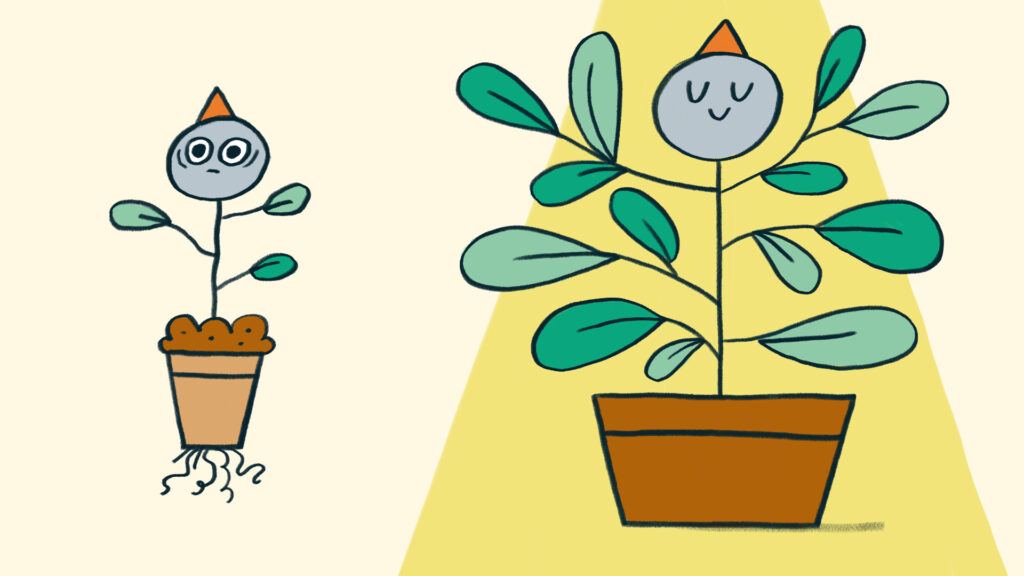Japanese Minimalism: Five Principles to Declutter your Life8 min read

Does this sweater give me joy? Nope, well, that means it goes into the trash. Does this pillow excite me? No, bye-bye. What about my left arm? Well, I have no strong feelings toward that either; goodbye!
Minimalism is a trend that I’ve jumped on, and it has resculpted my life in a way I never thought possible. And it’s about more than just “the stuff.”
When there is too much clutter, you can’t think. When you can’t think, you can’t create. When you can’t create, your world slows down. What if we only filled our lives with things that had real value and removed everything else.
Steve Jobs was so passionate about what he filled his life with that he went eight years without a sofa because he couldn’t find one that gave him joy. Many people in Japan don’t have chairs in their homes at all; they simply sit on the ground. One particularly passionate minimalist, Andrew Hyde, lived for a year with only 15 items.
Popularized by people such as Marie Kondo and Fumio Sasaki, minimalism can be a fantastic break away from a cluttered life. Specifically, given the above two figures, Japanese Minimalism focuses on keeping a simple, clean life inspired by Japan’s unique culture and history.
In this post, we will go over seven key principles of Japanese Minimalism.
Create Space
Space is invaluable. Where can you create more? Have you ever watched a movie where a character comes back to a broken-down apartment with beer cans, chip packages everywhere, and awful posters that litter the walls; when there is so much junk, you can’t even see the floor. In the movie, is this character a winner or a loser?
The cluttered space is symbolic of the character. There are too many things going on in the character’s life; he can’t handle it.
When people revert to clutter no matter how much they tidy, it is not their room or their belongings but their way of thinking that is at fault.
Marie Kondo
Marie Kondo has a great way of deciding which things to keep or discard:
Step 1: Answer, “Does it spark joy?”
Step 2: If “yes,” keep it. If “no,” discard it or donate it.
That’s it.
She recommends cleaning in the following order:
- Clothes
- Books
- Papers
- Miscellaneous
- Sentimental Items
Embrace Space
Embrace your newfound space. Ideas and creations can’t thrive when cluttered. If you keep a plant in the same-sized pot, it will never reach its true potential. Have you ever had a brilliant idea in the shower? Or when you went for a walk outside and forgot your phone? Space allows things to grow, and you want to grow, don’t you?
It is not the man who has too l little, but the man who craves more, that is poor
Seneca
The greatest comedians and speakers know how to use pauses in their speeches perfectly.
We can embrace physical space by removing as many things as possible and then living in the emptiness, such as removing unused or cluttering clothing and furniture. However, we can also embrace more space in our thoughts.
- Stop listening to anything in the shower, gym, or car
- Stop watching TV while eating dinner.
- Spend time in Nature alone with no specific purpose and no distractions in your hand
- Work on a blank word document with no internet connection, full-screen, and no other windows open (or, work on a piece of paper with no screen near you)
- Have a dinner out with friend or family, no phones allowed
Be Purposeful with Your Space-Fillers

What is the purpose of this drawer? This item? be purposeful.
Marie Kondo emphasizes the proper use of storage within your living space. Of course, the goal is to have few things to store, but if we must, to have a specific place for it:
The reason every item must have a designated place is because the existence of an item without a home multiplies the chances that your space will become cluttered again
Marie Kondo
Vertical storage has the capacity for much more than storage on hangars. The only things that require hangars are dresses, suits, coats, jackets, and collared shirts. When organizing clothes, ensure each section is in a specific category, such as heaviness to lightness or color.
Books are the next point of pain, and Marie Kondo recommends discarding or donating any books that don’t spark joy. Will you reread that book? Is it just taking up space? When it comes to papers such as bills and study materials, we should discard them all. We will not need them again. If you are paranoid, you can take a picture and store it on a virtual notes app.
Good storage should show everything you have in one glance, cans behind cans, clothes behind clothes, adds clutter and time.
Kondo stores everything away before using it. The oils, salts, and pepper for cooking are put away in a drawer and then pulled out each time she uses them. Then she puts them back when she’s done cooking.
Finally, for sentimental items, Kondo again recommends removing most things with only a personal shrine on top of her bookcase with her favorite gifts that spark joy.

Eliminate Choices
Steve Jobs and Mark Zuckerberg famously wore the same outfit every day. They did this to save their mind from having to make a decision. Every day they were confronted with meaningful choices; why waste their brain-energy on deciding what to wear?
Importantly, this idea can be applied to everything in your life:
- Eating the same breakfast every day
- Only drinking water (even on the weekends)
- Going to bed and waking up at the same time every day (even on the weekends)
- Have a morning and night time routine (that doesn’t change)
The most important asset you have in life is time. When you eliminate decisions, you free up mental space and add time to your day.
Life is really simple, but we insist on making it complicated.
Confucius
The great thing about embracing minimalism regarding your “stuff” is that when you start to eliminate “stuff,” you are also removing more choices.
Which plate should I eat with? What chair should I sit on? Which soap or shampoo should I use?
Fumio Sasaki uses the same product to wash his hair, body, clothes, and vegetables. He only has one plate, one cup, and one set of cutlery.
More choices, paradoxically, make us unhappier.
Eliminate decision fatigue, eliminate choices, liberate time, and free your mind to focus on more important things.
Love Imperfection
Importantly, now that you have reduced your possessions as much as possible you may be thinking every single item you own needs to be perfect because you own so little. One of my favorite Japanese ideas is something called “wabi-sabi,” which translates to appreciating the imperfection and transience in everything.
Your table doesn’t need to be an exact square. Your carpet doesn’t need to be pristine and stain free. Your garden shouldn’t be the same the entire year.
One great example of wabi-sabi is the tea bowl. What is more beautiful, the mass-produced circular and teeth-white bowl you can get on amazon? Or an earth-colored clay bowl hand-made by a local artist?
Finally, in regards to transience, realize nothing lasts forever. Things break, people die, but that’s life. Amazing things are created, people are born. That’s also life.
Think Beyond “Stuff”

One final Japanese principle that isn’t exclusively Japanese is the idea of “Zen.” Zen is diverse, but it focuses partly on simplicity and seeing the nature of things without applying our inputs. For example, when you meditate, thoughts will come into your head, but if you can not label them as “good” or “bad” but, instead, acknowledge they exist without a label, you are practicing Zen (specific mindfulness).
Why practice minimalism at all? Why go through all the effort of organizing and discarding all these items in our life? Once your “stuff” is simplified, you can move on to the more critical and difficult task of focusing and simplifying your thoughts. The simple act of organizing your physical possessions will help you manage your mental space as well.
If your mind isn’t clouded by unnecessary things, then this is the best season of your life.
Wu Men
Summary
Of course, there are many, many other facets to Japanese minimalism; I just wanted to provide a brief discussion of the principles that stood out most to me; here they are one more time.
- Create space by decluttering your physical possessions. Does it evoke joy? No? Then throw it out.
- Embrace space by having as much physical space as possible where you live. Take it to another level by allowing emptiness in your mind when doing tasks such as working out, eating, or traveling.
- Organize purposefully. There should be a place for everything, never a “Junk drawer.”
- Eliminate choices. Maybe you wear the same outfit every day, eat the same food, or wake up and go to sleep at the same time.
- Everything is transient, nothing is perfect, and that’s ok.
- Can we apply the idea of simple living to our thoughts? To our actions?
0 Comments